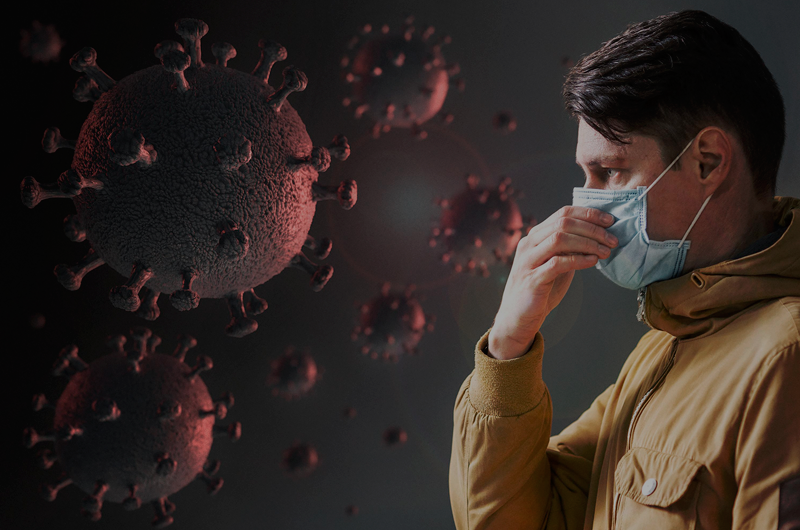Koa Hosoki, Abhijit Chakraborty, Sanjiv Sur.
J Allergy Clin Immunol. 2020 Jul 2;146(2):285-299. doi: 10.1016/j.jaci.2020.05.033. Online ahead of print.
Back in March 2020, the World Health Organization declared COVID-19 a global pandemic caused by the severe acute respiratory syndrome coronavirus 2 (SARS-CoV-2). The aim of this article was to discuss how the development in some allergic rhinitis symptoms can serve as clues for the onset of COVID-19, and also to understand why patients with asthma can be at a higher risk for severe COVID-19.
There are some differences in symptoms in people with allergic rhinitis and those infected with the SARS-CoV-2. The later usually develop symptoms such as dry cough, sore throat, nasal congestion, shortness of breath, myalgia, fatigue, fever and rarely conjuctival congestion. People who suffer from allergic rhinitis present with runny itchy nose, itchy eyes, sneezing, postnasal drip and conjunctival congestion. From an allergist’s perspective, a shift from common allergic rhinitis symptoms to those related in COVID-19 (fever, cough and shortness of breath), may suggest the onset of COVID-19 in people with allergic rhinitis. Also, the prevalence of taste or olfactory dysfunctions such as anosmia and dysgeusia is higher in COVID-19 patients than in allergic rhinitis.
Wheezing, which is common in asthma exacerbations, rarely occurs in hospitalized patients with COVID-19. However, as asthma and COVID-19 are associated with cough and shortness of breath, it is important to exclude COVID-19 in people with asthma exacerbations. The mechanisms underlying the association between asthma and COVID-19 are related to the attenuated IFN-I and IFN-III response to respiratory infections that people with asthma have. Because COVID-19 infects lung and airway cells, it also induces and attenuated IFN-I and IFN-III signature, similar to the one observed in people with asthma, the reason why it is expected that COVID-19 frequently triggers asthma exacerbations.
Until an effective vaccine and treatments develop, it is important to understand the scientific rationale of the disease and to maintain mitigation strategies such as wearing facemasks and social distancing.






